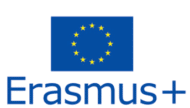Anxiety amongst young adults is increasing. Recent research has shown that there has been a steep rise in the levels of anxiety among teenagers and young adults who are attending third level institutions (Dooley et al. 2019) and further research has shown that almost 40% of students in higher education are experiencing high levels of stress and anxiety. The source of this is not the same for every case but it is clear that third level education can involve many stressful situations including academic demands, financial pressures, social pressures and loneliness, all of which may trigger and/or aggravate mental health challenges in our young people (Price & Smith, 2019).
For this reason, it is more important than ever to promote positive mental health in our young people in a way that is understandable, relatable and accessible.
Computer games are growing in ubiquity and are now played by countless teenagers and young adults worldwide. As well as for entertainment, computer games are increasingly being created and designed for serious purposes, including education, awareness raising and mental health. Through these games, our young people can learn about their own mental health and learn to identify what may trigger their stress/anxiety.

Serious games and gamification refer to the application of computer games or gaming elements for “serious” purposes, such as education, learning, information and awareness raising, motivation or behaviour change. Serious games and gamification may be beneficial for targeting mental health for a number of reasons including their reach, their potential for creating enjoyable and engaging content and their ability to provide young people with opportunities to experience and repeat new skills in a ‘safe’ environment. To date, game-based approaches to mental health remain a relatively new development; yet, research has pointed to their potential effectiveness for psychological and behavioural changes or relief from symptoms (Fleming et al., 2017).
Introducing the PLAY project
The PLAY project is new cross Erasmus+ funded project that we are contributing to. PLAY stands for Play, Learn and fight AnxietY. The primary aims of PLAY are to help university students become better prepared for University curricular activities, to help them reduce their anxiety and strengthen their awareness of their mental health. PLAY will develop an innovative scenario-led, gamified tool with which university students can engage through the design of a 3D virtual world. The game will allow students to gain skills and strategies for overcoming anxiety as they engage in university life and their studies.
The PLAY project is being coordinated by the University of Patras (Greece), with contribution by a range of European partners in Cyprus, Ireland and Portugal.
Project partners are:
- University of Patras (Greece)
- Optionsnet (Greece)
- University Institute of Maia (Portugal)
- Open University of Cyprus (Cyprus)
- Institute of Child Education and Psychology (Ireland)

We are delighted to be part of this new and innovative project which we hope will benefit countless young people across the globe. Will be using our psychological expertise to contribute to the development of the game scenarios which are designed to promote skill development in young people, helping them to overcome the stresses associated with university life. We are looking forward to working with, and learning from, our new partners across Europe as this project develops.
You can learn more and keep up to date with news at the dedicated PLAY project website: http://play2fightanxiety.eu/

This project has been funded with support from the European Commission under the Erasmus+ Programme. This publication [communication] reflects the views only of the author, and the Commission cannot be held responsible for any use which may be made ofthe information contained therein Project Number: 2019-1-EL01-KA203-062549




